ASCI takes definitive steps to curtail misleading claims in ads
The Advertisement Standards Council of India (ASCI) has introduced guidelines for usage of Awards/ Rankings in advertisements effective February 1, 2020. It has become increasingly common for advertisers to make superiority claims in advertising for their products and services based on awards and rankings received. Consumers are sometimes misled into believing that an award or ranking which is given to a brand, product, institute or service makes it superior and/ or more authentic.
The guidelines will lend assistance to advertisers for appropriate and correct usage of reference to awards or rankings in advertising; to ensure that their claims are not misleading. The guidelines will also assist the advertiser to understand the rigour required for claim substantiation and pitfalls to avoid so that their claims pass the muster with ASCI’s Consumer Complaints Council (CCC).
To validate their claims in advertisements, brands and services need to ensure that the accrediting bodies involved in disseminating or presenting awards or rankings are authentic and credible. The guidelines are applicable to all advertisers and would particularly be relevant for healthcare services and the educational sector, which tend to use such superiority or leadership claims. Prospective students and parents easily fall prey to awards/ ranking claims by institutes and coaching classes as they rely blindly on such claims. A wrong choice directly impacts the quality of education and future of children as well as has a financial implication. In the health services sector, misleading claims about rankings and awards lure patients in choosing the service provider and could hamper patient health, quality of care received and result into financial losses.
Commenting on the new guidelines, Rohit Gupta, Chairman, ASCI, said, “Among several important initiatives planned for 2020, our very first announcement for the year is these Guidelines for advertisers making superiority claims referring to the awards or rankings they receive. Claims such as ranking 1st in the state or in India, receiving an award for being the most trusted or award of excellence, listed in some book of world records, etc., makes consumers believe that the product/ service is recognised and trustworthy, whereas in some cases this may not be true. The guidelines are a step towards ensuring that advertisers are cognizant of the serious impact of deceptive advertising and hence, make responsible claims when referring to awards and rankings in their advertisements.”
ASCI Guidelines for Usage of Awards/ Rankings in Advertisements
Preamble
Awards and rankings are increasingly being used by advertisers to make superiority claims for their products and services in advertising.
Consumers, owing to a lack of knowledge, may be led into believing that an award or ranking which is given to a brand, product, institute or service makes it superior and/or more authentic.
Some of the awards and rankings are likely to mislead the consumer by communicating that the product or service is a recognised one, and raise its esteem in the mind of the consumer as evaluated by experts or by a large body of experts, whereas this actually may not be the case.
It is, therefore, accordingly necessary, that awards and rankings used in advertising should be sourced from credible, recognised, independent bodies which employ ethical processes, rigour and appropriate research so that superiority claims made by advertisers are substantiated and do not mislead consumers.
This is particularly important for claims made by educational institutions which affect children’s education, career opportunities and future job prospects. In the healthcare services area, this can severely impact patients’ health and wellbeing.
Key reference for applicable ASCI Chapters
Chapter I - To ensure the Truthfulness and Honesty of representations and claims made by advertisers and to safeguard the consumer against misleading advertisements:
- Advertisements must be truthful.
- Where advertising claims are expressly stated to be based on or supported by independent research or assessment, the source and date of such independent research or assessment must be indicated in the advertisement.
- Advertisements shall not, without the permission from the person, firm or institution under reference, contain any reference to such person, firm or institution which confers an unjustified advantage to the product advertised or which tends to bring the person, firm or institution into ridicule or disrepute.
- Advertisements should disclose all material facts which if suppressed or distorted would mislead the consumer by implication or omission.
- Advertisements should be framed in such manner as to gain consumer trust and not exploit his/her lack of understanding or knowledge.
Guidelines
These guidelines are developed to guide Advertisers for appropriate reference to award/s or ranking/s claim/s in advertising and will assist the advertiser to understand why ASCI’s Consumer Complaints Council (CCC) may accept or reject the mention of a certain award or ranking.
- Awards/ Rankings should not be used as an alternative for consumer or scientific research or testing which is required to substantiate a superiority claim about the effective use or performance of products or services.
- Advertisements that refer to awards/ rankings should indicate clearly the name of the organisation that has provided the award/ ranking and the month and year in which the award/ ranking was pronounced.
- The validity of the award/ ranking so used to substantiate a claim should be of a period preceding the advertisement by not more than 12 months. In some cases, if the year of the award period is self-explanatory then such reference to the award being current is not applicable.
- The permission or consent of the person, institution or organisation conferring the award/ ranking should be obtained in writing before being used in the advertisement.
- Photographs of the award/ certificate/ the awards function or the list of invitees to the award function is by itself not sufficient evidence to support the award. Additionally, details on the protocol/ process followed by the awarding/ ranking organisation is required to substantiate the claim.
- Awards/ rankings based on surveys done in one area (say, a city or state) cannot be extrapolated to include a larger territory (say, India, Asia, World). Institutions cannot extrapolate data to substantiate their claim. Additionally, awards/ rankings given in one category cannot be used to promote an institution in another category. For example –
- If a university ranked 25th on a national level, cannot claim that it is in the top-5 in say the North zone, unless the awarding organisation publishes a zonal ranking as well.
- If the award is given to a particular department of a college or to a college under a university then the same cannot be attributed to the college or university respectively
- To substantiate the award/ ranking claim, the Advertiser needs to give an undertaking that there is no commercial relationship or conflict of interest between the awarding organisation/ the research agency/ jury members and the advertiser and that they are two independent entities. To be specific, there should be no direct or indirect payment made by the advertiser to the Institution or organisation granting such award.
- For a complaint lodged at ASCI against an advertisement claiming award/ ranking, the concerned Advertiser would be required to provide details on the protocol/ process followed by the awarding/ ranking organisation for conferring the award/ ranking on the product/ service. This would mean and include, but shall not be limited to:
- The criteria for granting award/ ranking, which should be published and available in the public domain.
- The process followed, i.e. either via Market research or by a Panel decision
- If it is by means of a market research then its authenticity needs to be supported:
- Is the market research agency a member of a recognised Market Research Association such as Market Research Society of India (MRSI) or ESOMAR. The sample size and methodology adopted.
- If there has been no market research but award granted is based on a panel/ jury decision, then in such case :
- the credentials and qualifications of the panel/ jury judging the subject of the claim made for the brand
- the detailed process followed by the panel in arriving at the decision
- How many brands/ products were assessed? What was the criteria used and what was the methodology deployed by the panel in arriving at its decision?
- For a complaint lodged at ASCI against an advertisement claiming award/ ranking for a school/ college/ university/ educational enterprise, then the concerned Advertiser would be required to provide details on the protocol/ process followed by the awarding/ ranking organisation for conferring the award/ ranking on the institution. This should include:
- The evaluation parameters which must be clearly specified and the respective scores obtained by the educational institutions on each parameter so specified.
- The parameters should cover various aspects, such as, infrastructure, students per class, faculty strength and profile, outcomes (academic results/ awards/ higher studies), teaching methodology, sports education, co-curricular activities, leadership and life-skills, etc.
- If it is by means of a market research then its authenticity needs to be supported:
- Only when a multi-faceted evaluation is done can there be a fair evaluation of the quality of education provided by an educational institution.
- Where multiple parameters are used, the weightages between the various parameters need to be indicated.
- For a complaint lodged at ASCI against an advertisement claiming award/ ranking for a healthcare enterprise/ hospital/ treatment, then the concerned Advertiser would be required to provide details on the protocol/ process followed for conferring the award/ ranking on the product/ service. This should include:
- Evaluation parameters which are clearly specified and the scores obtained by leading healthcare providers on each parameter is published.
- The parameters should cover various aspects, such as, infrastructure, number and profile of doctors, their experience and qualifications, patient care outcomes, innovation in treatment/ protocols and impact on business operations or patient care outcomes and medical KPIs.
- Where multiple parameters are used, the weightages between various parameters needs to be indicated.
- Where doctor, patient or general public perception is incorporated in the evaluation process, the study should be collected by an independent reputable agency, the sample size and spread, target group definition, sampling method and the field control procedures should be clearly specified.
- The questionnaire and data collection records should be available to ASCI for review.




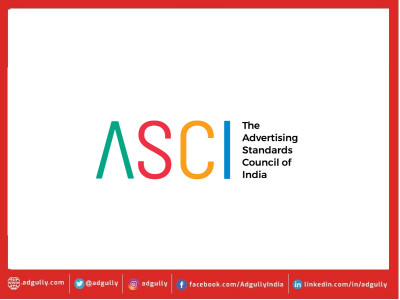
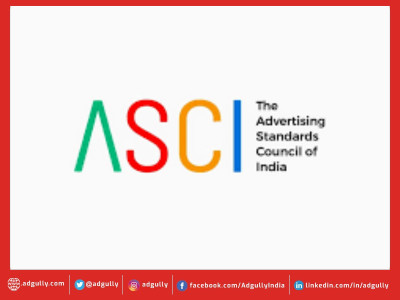
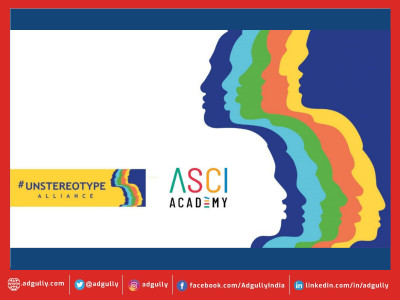



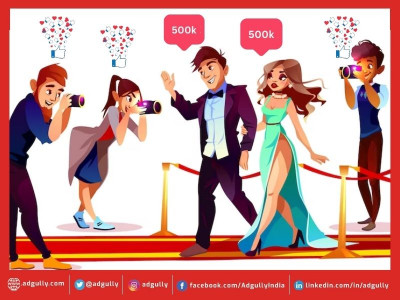

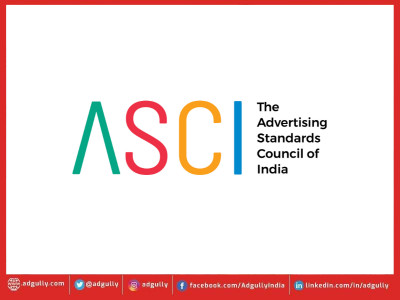

Share
Facebook
YouTube
Tweet
Twitter
LinkedIn